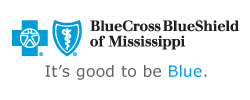
Countdown to ICD-10 Implementation
ICD-10 is here, Blue Cross & Blue Shield (BCBSMS) is prepared to transition to ICD–10. Are you? In order to ensure a smooth transition to ICD–10, please take note of the following:
1. ICD–10 Claim Guidelines
When submitting claims, please keep the following in mind:
- Consistent with CMS guidelines, BCBSMS cannot accept claims that have ICD–9 and ICD–10 codes on the same claim. These claims must be separated and not combined on a claim.
- For dates of service or dates of discharge prior to October 1, 2015, ICD–9 codes must be submitted to BCBSMS. ICD–10 codes for these dates of service will not be accepted.
Professional Claims
- Professional claims with dates of service before October 1, 2015 must be filed with ICD–9 codes.
- Professional claims with dates of service on or after October 1, 2015 must be filed with ICD–10 codes.
- When submitting corrected claims, providers must utilize the code set that is valid for the dates of service in accordance with the guidelines above.
Outpatient Institutional Claims
-
Outpatient institutional claims that begin before October 1st and continue through October 1st must have two
separate claims submitted. The claim prior to October 1st must have ICD–9 codes and the claim on or after
October 1st must have ICD–10 codes.
For Example, you are filing outpatient physical therapy visits for services that were rendered September 28th through October 2nd. The September 28th–30th can be filed together and must be submitted with ICD–9 codes. The October 1st–2nd can be filed together and must be submitted with ICD–10 codes.
-
Consistent with CMS guidelines, other institutional claims that have dates of service expanding beyond
October 1, 2015 must be split into two separate claims. This applies to claims with the following types of
bill:
- 12X Inpatient Part B Hospital Services
- 13X Outpatient Hospital
- 14X Non–patient Lab Services
- 22X Skilled Nursing Facilities (Inpatient Part B)
- 23X Skilled Nursing Facilities (Outpatient)
- 34X Home Health (Outpatient)
- 71X Rural Health Clinics
- 72X End Stage Renal Disease (ESRD)
- 74X Outpatient Therapy
- 75X Comprehensive Outpatient Rehab facilities
- 76X Community Mental Health Clinics
- 77X Federally Qualified Health Clinics
- 81X Hospice – Hospital
- 82X Hospice – Non Hospital
- 85X Critical Access Hospital
- 86X Residential Facility
- 89X Special Facility – Other
Inpatient Institutional Claims
- Inpatient Institutional claims with dates of discharge prior to October 1, 2015 must be filed with ICD–9 codes.
- Inpatient Institutional claims with dates of discharge on or after October 1, 2015 must be filed with ICD–10 codes.
2. Medical & Coding Policy Changes
ICD–10 updated Medical and Coding Policies have been published to allow your staff ample time to review prior to the transition. The updated Coding Policies include Healthy You! Coding Guidelines, H1N1(Swine–Flu Vaccine) and Medically Indicated Early–Term Deliveries (Prior to 39 Weeks) Coding Guidelines.
The Medically Indicated Early–Term Deliveries (Prior to 39 Weeks) Coding Guidelines have been updated to include the weeks of gestation and delivery outcome on both professional and facility delivery claims effective October 1st. The type of labor, delivery method and the number of deliveries associated with the delivery method are also required on the professional delivery claim however, coding will be optional until January 1, 2016 to allow you time to get acclimated to the coding guidelines. The clinical diagnosis information will serve the purpose of identifying, evaluating, and developing initiatives that align with best practice obstetric care. It is important to closely review the Medically Indicated Early–Term Deliveries (Prior to 39 Weeks) Coding Guidelines prior to submitting delivery claims on or after October 1st to avoid claims disruption.
3. Importance of Diagnosis Codes
The new ICD–10 code sets have the potential to provide more detailed data as to diagnoses. The additional detail will also assist with identifying patients who are eligible for disease management programs. To ensure your claims are coded accurately, each diagnosis code from an episode of care must be provided on the claim. It is important that all physicians, medical coders as well as office staff, are trained on how ICD–10 codes should be used. BCBSMS will accept all patient diagnosis codes submitted on a claim – as such, please include every diagnosis code on your claims.

 Please wait while you are redirected.
Please wait while you are redirected.  myBlue Pharmacy Registration
myBlue Pharmacy Registration be RxSmart
be RxSmart Medical & Coding Policies
Medical & Coding Policies Provider Application
Provider Application